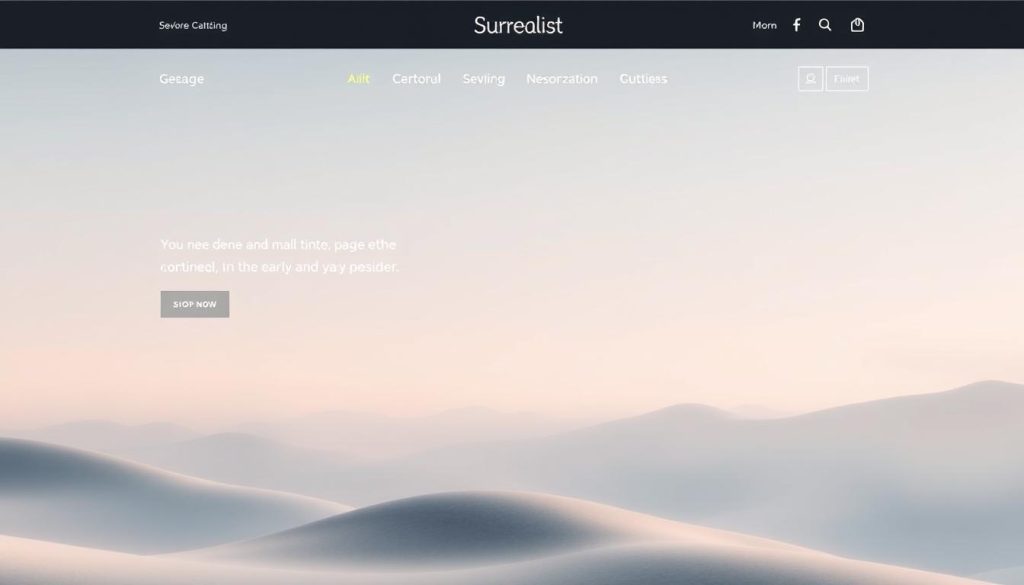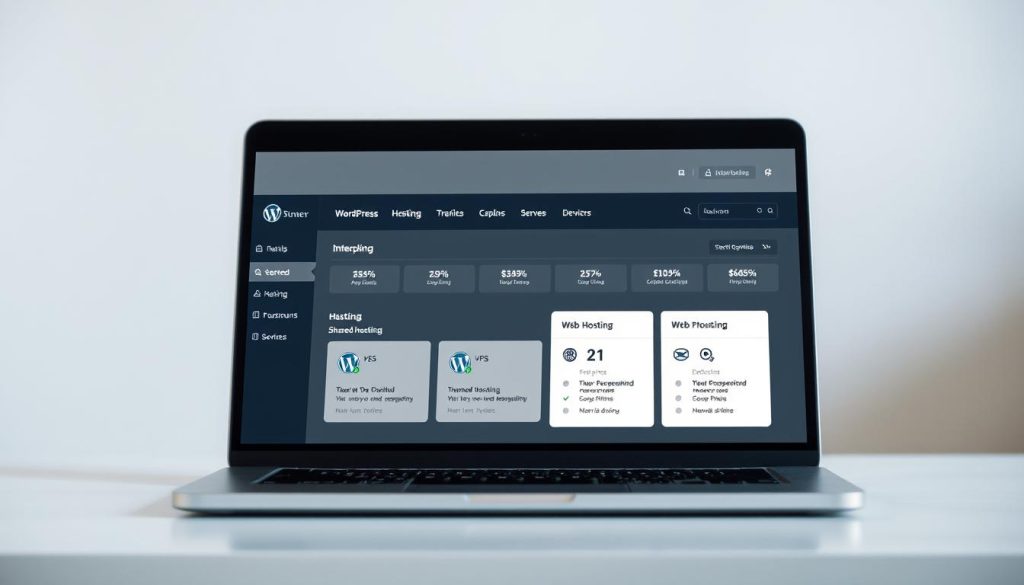Exploring business banking in France is key for any new entrepreneur. It’s vital to understand the French banking system well. Knowing how to move through this world is key for setting up a business account and managing money.
Our goal is to help you find a good banking relationship for your business. We aim to guide you through the complex rules and help you make smart banking choices in France.
Understanding the French Banking System
The French banking scene is varied, with different banks for people and businesses. We can group these into retail, investment, and cooperative banks. Each type has its own role, providing services that fit various client needs.
Overview of the Banking Landscape
France’s banking system is strong in Europe. It supports many financial activities, from everyday banking to investment. Retail banks like Crédit Agricole and Société Générale offer basic services. Investment banks handle asset management and more complex services. Cooperative banks help local communities, focusing on mutual support.
Key Players in the Market
Several big names lead the French banking scene. These include:
| Bank | Type | Services Offered |
|---|---|---|
| Crédit Agricole | Retail Bank | Personal banking, savings products, loans |
| BNP Paribas | Investment Bank | Wealth management, financial advisory |
| Société Générale | Retail Bank | Banking and insurance services |
| Banque Populaire | Cooperative Bank | Local finance, investment products |
These banks provide a wide range of financial products for businesses. Knowing about these institutions is key for businesses looking to start in France.
Setting Up a Business Bank Account in France
Starting a business in France means getting a business bank account. It’s key to know the required documentation to make it easier. Also, picking the right bank is important for our business needs.
Required Documentation
To open a business bank account in France, you need certain documents. These are:
- Proof of identity (passport or national identity card)
- Proof of address (utility bill or rental agreement)
- Business registration documents (K-bis extract for French businesses)
- Tax identification number
Having these ready will help speed up the process. Banks might ask for more, so it’s good to check with them.
Choosing the Right Bank
Choosing a bank in France is about finding the right fit for your business. Consider these points:
| Factor | Details |
|---|---|
| Fees | Know the fees for keeping the account and for transactions. |
| Services Offered | Look at extra services like loans, credit cards, or online banking. |
| Accessibility | Think about branch locations and online service availability. |
| Customer Support | Check if they offer support in English and help for non-French speakers. |
By looking at these points, you can choose a bank that meets your business needs. This will make banking in France easier.

Company Formation in France
Setting up a business in France starts with understanding the formation process. We’ll look at the various business types and the steps to register in France.
Types of Business Entities
In France, you can form different types of businesses. The main ones are:
- Sole Proprietorship: Great for freelancers and solo entrepreneurs.
- Partnerships: Good for businesses with two or more people sharing profits and duties.
- Société à Responsabilité Limitée (SARL): A limited company that protects personal assets.
- Société par Actions Simplifiée (SAS): A flexible joint-stock company for various management setups.
- Société Anonyme (SA): A public company for big businesses seeking investments.
Steps for Registration
The registration process in France has key steps:
- Choose a Business Name: Make sure it’s unique and doesn’t conflict with trademarks.
- Prepare Legal Documents: Collect all needed papers, like ID, address proof, and a business plan.
- Register with a Commercial Court: File your application and documents at the local court.
- Get an SIRET Number: This number is vital for taxes and official records.
- Open a Business Bank Account: Essential for managing money and getting payments.
Nominee Services in Business Banking
In business banking, nominee services are key for those wanting privacy and to follow the law. They let people choose nominees to hold shares or directorships for them. This is very useful in France, where keeping ownership private is often needed but hard to do.
Knowing about nominee services helps us make better choices in the banking world.
What Are Nominee Services?
Nominee services mean a third party holds legal title to assets for business owners. But the real owner keeps control over the assets. This keeps things private and is common in France’s banking world.
It’s a way for foreign investors or entrepreneurs to work in France without being too open.
Benefits of Using Nominee Services
Using nominee services has many benefits. It’s not just about keeping things private. It also helps with taxes and following the law. The main benefits are:
- Privacy Protection: Keeps the real owners’ identities secret, giving peace of mind.
- Tax Efficiency: Helps lower tax bills within the law.
- Regulatory Compliance: Makes it easier to follow French rules on owning businesses.
- Flexibility: Lets business decisions be made without revealing who owns the business.
Looking at our needs helps us see when nominee services are best. This makes our business safer and more in line with the law.

| Advantage | Description |
|---|---|
| Privacy Protection | Maintains confidentiality of business owners’ identities. |
| Tax Efficiency | Helps minimise tax liabilities while remaining legally compliant. |
| Regulatory Compliance | Facilitates adherence to local regulations governing ownership. |
| Flexibility | Allows for easier decision-making and management without owner exposure. |
Payment Processing Services in France
In today’s digital world, fast payment processing is key for French businesses. We’ll look at the top payment methods in France. Knowing these options helps us make transactions smooth. Setting up payments right means our customers have a great shopping experience.
Popular Payment Methods
Many payment solutions are accepted in France, making transactions easy for everyone. Here are some common ones:
- Credit and Debit Cards: The most used, with Visa and Mastercard being the leaders.
- Direct Debit: Favourite for regular payments, like subscriptions and services.
- Online Payment Solutions: PayPal and Stripe are popular for online shopping, appealing to the younger crowd.
- Mobile Payments: With more people using smartphones, apps like Apple Pay and Google Pay are becoming popular.
Setting Up Payment Processing
To set up payment processing for our business, we need to follow some steps:
- Acquiring a Merchant Account: This account is vital for getting payments. We should compare banks and providers to get the best deal.
- Selecting Payment Solutions: Knowing our audience helps us pick the right payment methods for them.
- Integrating Payment Gateways: Our website or app must connect smoothly to the chosen payment solutions. This ensures secure transactions.
- Conducting Testing: Testing our payment systems well is important. It helps us find and fix any problems before customers use them.
Staying up-to-date with payment processing trends can really help our business. It lets us serve our customers in France better.
Financial Services for Businesses
Understanding the financial services for businesses in France is key. It helps us get the funding and support we need. By using different finance solutions, we can tackle challenges and make smart financial choices.
Types of Financial Services Available
In France, businesses can find many financial services. These services help with day-to-day needs and growth plans. Here are some common ones:
- Loans: These can be for short-term needs or long-term projects.
- Credit lines: They offer flexible borrowing to manage cash flow.
- Investment services: They help with equity and debt funding for growth.
- Insurance services: They protect assets and manage risks.
- Wealth management services: They offer strategies for growing financial assets.
Understanding Banking Fees
Knowing about banking fees is important for managing our finances well. Different fees can affect our financial health. Here are some fees we should be aware of:
| Fee Type | Description | Typical Cost |
|---|---|---|
| Transaction Fees | Charges for processing payments and transfers. | €0.10 – €0.50 per transaction |
| Maintenance Fees | Monthly fees for keeping our business bank account. | €5 – €20 per month |
| Commission Rates | Fees for investment services and financial advice. | 0.5% – 3% of the transaction value |
SEO for WordPress in Business Banking
In the competitive world of business banking, SEO is key. It boosts our online presence and helps us connect with clients and customers. Optimising our website at every stage can greatly increase our market reach and credibility.
Importance of SEO
Good SEO is vital for bringing the right people to our websites. With so many businesses vying for attention, those with strong SEO stand out. By focusing on SEO, we improve our search engine rankings and gain trust with future clients through quality content and easy-to-use sites.
Tips for Optimising Your Website
To make our website better, we should follow these tips:
- Keyword Research: Finding the right keywords helps us create content that meets our audience’s needs.
- Content Creation: Creating high-quality, informative content with our keywords makes us industry leaders and attracts more visitors.
- Technical Optimisation: Making sure our site loads fast and works well on mobiles improves user experience and search rankings.
- On-Page SEO: Using keywords in titles, headings, and meta descriptions helps search engines understand our content.
- Link Building: Getting backlinks from trusted sites boosts our authority and trustworthiness in search engines’ eyes.
Having a strong online presence through SEO is essential for success in business banking. Using these strategies will improve our search engine visibility and client engagement.
WordPress Design and Redesign
Starting a new website or updating an old one means we need to know about WordPress design. A good design shows off our brand and makes the site easy to use. Important parts like layout, navigation, and how it looks on different devices are key to a great redesign.
Key Considerations in Design
Good WordPress design is about how users interact with our site. Keeping things simple helps visitors move around easily. Using colours and fonts well can also make a big impact. Here are some things to think about:
- Layout: Making content look good and easy to find is important.
- Navigation: A clear path helps users find what they need fast.
- Responsiveness: Our site should work well on all devices for a smooth experience.
Redesigning for Better User Experience
Improving user experience is the main goal in redesigning a website. We can do this by listening to feedback and testing how users interact with our site. Here are some ways to make it better:
- Analysing User Behaviour: Seeing how users move around our site helps us spot problems.
- A/B Testing Designs: Trying out different versions helps us find the best design.
- Incorporating Visual Elements: Using great images and videos can make the site more engaging.

WordPress Maintenance Essentials
To keep our WordPress sites running well, we need to do regular maintenance. This means updating themes, plugins, and core files. Keeping our site updated boosts its performance and makes it better for users.
Regular Maintenance Tasks
There are key tasks in WordPress maintenance we should do often. These include:
- Updating WordPress core, themes, and plugins
- Performing regular backups
- Monitoring website performance
- Checking for broken links
- Optimising database
By doing these tasks, our websites stay in top shape. These steps are vital for keeping our sites running smoothly and preventing problems.
Importance of Security Updates
Security updates are a top priority for WordPress sites. The internet is always changing, with new threats appearing. To stay safe, we need to follow security best practices, such as:
- Regular updates to all software components
- Using security plugins
- Setting strong passwords and user roles
By focusing on security updates, we protect our site from harm. Staying alert to risks and managing security helps keep our site safe for everyone.
WordPress Web Hosting Options
Choosing the right WordPress hosting is key for business success online. We look at various hosting solutions for WordPress users. Knowing the different types and what they offer helps us pick the best web host.
Hosting Solutions for Businesses
Businesses have many hosting options. These include shared hosting, Virtual Private Servers (VPS), and dedicated servers. Each has its own benefits:
- Shared Hosting: It’s affordable for new businesses with less traffic.
- VPS Hosting: It gives more flexibility and resources, great for growing businesses needing more control.
- Dedicated Hosting: It gives a whole server for your business, perfect for high traffic or strong security needs.
Factors to Consider in Choosing a Host
When picking a web host, consider a few key factors for the best performance and reliability:
| Factor | Importance | Considerations |
|---|---|---|
| Uptime Guarantee | Essential | A reliable host should offer 99.9% uptime to ensure our website remains accessible. |
| Customer Support | Very Important | 24/7 support via chat, email, or phone can be key for quick issue resolution. |
| Scalability | Important | The chosen host should allow easy upgrades as traffic and business needs grow. |
| Security Features | Important | Look for options with regular backups, SSL certificates, and malware scanning. |

Local vs International Banking
Exploring business banking, we see a clear split between local and international banking. Each has its own pros and cons. Knowing these can help us pick the right banking for our French business.
Pros and Cons of Each
Local banking is simple and has good customer service. It often has lower fees and knows the local market well. But, it might not offer as many products.
On the other hand, international banking has more products like foreign currency accounts. But, it can cost more and have complex rules.
| Aspect | Local Banking | International Banking |
|---|---|---|
| Customer Service | Personalised and accessible | Often limited due to geographical differences |
| Fees | Generally lower | Can be higher with varying costs depending on services |
| Product Range | Limited to local offerings | Extensive, including global services |
| Understanding of Market | In-depth local knowledge | Broad but less specific knowledge of local market |
| Regulatory Environment | Easier navigation | Complex with different jurisdictions |
When to Consider Local Banking
Local banking is good for small to medium-sized businesses. It offers close support and knows the local market well. If your business is mainly in France and doesn’t need international services, local banks are a better fit.
In summary, understanding the pros and cons of local and international banking helps us make the best choice for our business goals.
Trends in Banking Services in France
The banking scene in France is changing fast. This is thanks to new tech and how people want to bank. Digital banking is leading these changes, showing how banking is evolving for everyone.
There’s a big move towards making banking easier and faster. This is true for both personal and business banking. The growth of FinTech in France is helping businesses a lot.
Digital Banking Trends
More people and businesses are using digital banking. Mobile apps, online accounts, and contactless payments are now common. Banks are making their digital services better, focusing on how easy they are to use and keeping them safe.
AI is helping banks support their customers better. This makes banking easier and more efficient for everyone.
The Rise of FinTech
FinTech is changing the banking world in France. New companies are bringing fresh ideas to banking. They’re making services that meet specific customer needs.
Startups are not just competing with big banks. They’re also working with them to offer new services. This teamwork is making banking better for everyone.
In short, digital banking and FinTech are key to today’s banking trends. They’re changing how banks interact with customers and making banking services more efficient.
Challenges in French Banking
Entering the French banking system can be tough for businesses. They must understand complex French banking regulations. These rules change based on the business type and operations. Language barriers also make communication with banks hard.
Navigating Regulations
French banking rules are strict and all businesses must follow them. These include anti-money laundering and customer ID rules. To stay compliant, using local experts is key. They help avoid fines and clarify what’s needed.
Overcoming Language Barriers
Language differences are a big challenge, mainly for those who don’t speak French. These can cause mistakes in banking and following rules. To solve this, finding bilingual staff or translators is helpful. It makes transactions smoother and builds trust with banks.
Conclusion and Key Takeaways
Looking back at our journey through French banking, it’s clear that knowing the system is key for businesses. We’ve covered the basics of setting up a business bank account and the wide range of financial services out there. These are vital for our businesses to run smoothly.
Reflecting on our business banking recap, choosing the right bank and understanding French banking laws are critical. This knowledge helps us stay compliant and use all the services available to support our work. Digital banking and FinTech have also changed the game, giving us new ways to manage our finances.
As we continue to explore French banking, working with reliable partners like LerriHost can make things easier. They offer a wide range of services that help us succeed in the French market. With this knowledge, we’re ready to move forward with confidence in our business ventures.







